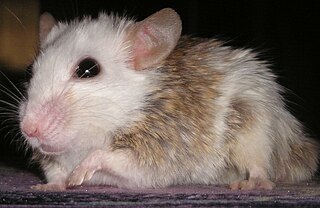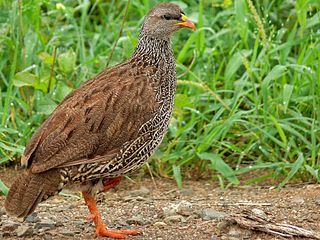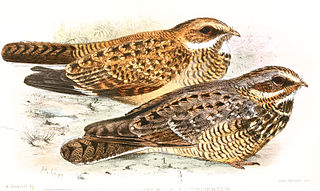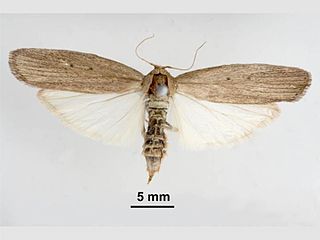
Cyperus papyrus, better known by the common names papyrus, papyrus sedge, paper reed, Indian matting plant, or Nile grass, is a species of aquatic flowering plant belonging to the sedge family Cyperaceae. It is a tender herbaceous perennial, native to Africa, and forms tall stands of reed-like swamp vegetation in shallow water.
NATAL or Natal may refer to:

Cyperus is a large genus of about 700 species of sedges, distributed throughout all continents in both tropical and temperate regions.

The red forest duiker, Natal duiker, or Natal red duiker is a small antelope found in central to southern Africa. It is one of 22 extant species form the subfamily Cephalophinae. While the red forest duiker is very similar to the common duiker, it is smaller in size and has a distinguishing reddish coloring. Additionally, the red forest duiker favors a denser bush habitat than the common duiker. The Natal red duiker is more diurnal and less secretive than most forest duikers, so therefore it is easier for them to be observed. In 1999, red forest duikers had an estimated wild population of 42,000 individuals.

Mastomys is a genus of rodent in the family Muridae endemic to Africa. It contains eight species:

The Natal multimammate mouse is a species of rodent in the family Muridae. It is also known as the Natal multimammate rat, the common African rat, or the African soft-furred mouse. The Natal multimammate rat is the natural host of the Lassa fever virus.

The Natal spurfowl or Natal francolin is a species of bird in the family Phasianidae. It is found in Botswana, Eswatini, Mozambique, South Africa, Zambia, and Zimbabwe.

The African yellow warbler, also known as Natal yellow warbler, dark-capped yellow warbler or yellow flycatcher-warbler, is a species of Acrocephalidae warblers; formerly, these were placed in the paraphyletic "Old World warblers".

The swamp nightjar or Natal nightjar is a crepuscular and nocturnal bird in the nightjar family found in Africa.

The red-capped robin-chat or Natal robin is a species of bird in the family Muscicapidae.

Vittina natalensis, commonly known as spotted nerite or zebra nerite, is a species of small freshwater snail with an operculum, an aquatic gastropod mollusk in the family Neritidae, the nerites. It returns to brackish waters to reproduce. This is a popular aquarium snail, sold because it looks attractive and eats algae in freshwater tanks, but can only reproduce in saltwater or brackish water conditions.

Cyperus laevigatus is a species of sedge known by the common name smooth flatsedge.

Radix natalensis is a species of freshwater snail, an aquatic gastropod mollusc in the family Lymnaeidae.

Eldana is a genus of moths of the family Pyralidae containing only one species, the African sugar-cane borer, which is commonly found in Equatorial Guinea, Ghana, Mozambique, Sierra Leone and South Africa. Adults have pale brown forewings with two small spots in the centre and light brown hindwings, and they have a wingspan of 35mm. This species is particularly relevant to humans because the larvae are a pest of the Saccharum species as well as several grain crops such as sorghum and maize. Other recorded host plants are cassava, rice and Cyperus species. When attacking these crops, E. saccharina bores into the stems of their host plant, causing severe damage to the crop. This behavior is the origin of the E. saccharrina's common name, the African sugar-cane borer. The African sugar-cane borer is a resilient pest, as it can survive crop burnings. Other methods such as intercropping and parasitic wasps have been employed to prevent further damage to crops.

Cyperus longus is a species of sedge known by the common names of sweet cyperus and water rush in Africa, or in Britain galingale.
Opisthopatus natalensis is a species of velvet worm in the Peripatopsidae family. This species has 16 pairs of legs. The type locality is in South Africa. The validity of this species is uncertain: Although some authorities have deemed O. natalensis to be a subspecies of O. cinctipes, a similar species also found in South Africa, and others regard O. natalensis as invalid even as a subspecies, still other authorities recognize O. natalensis as a separate species, citing the significant distance between the type localities of these two species.

The Southern African rock python is a large python species native to Southern Africa inhabiting savanna and woodland. It was first described by Andrew Smith in 1833. Growing a length of more than 5 m (16 ft), this is one of the largest snakes in the world.














